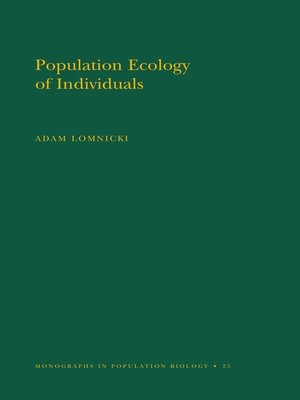
Sign up to save your library
With an OverDrive account, you can save your favorite libraries for at-a-glance information about availability. Find out more about OverDrive accounts.
Find this title in Libby, the library reading app by OverDrive.



Search for a digital library with this title
Title found at these libraries:
| Library Name | Distance |
|---|---|
| Loading... |
A common tendency in the field of population ecology has been to overlook individual differences by treating populations as homogeneous units; conversely, in behavioral ecology the tendency has been to concentrate on how individual behavior is shaped by evolutionary forces, but not on how this behavior affects population dynamics. Adam Lomnicki and others aim to remedy this one-sidedness by showing that the overall dynamical behavior of populations must ultimately be understood in terms of the behavior of individuals. Professor Lomnicki's wide-ranging presentation of this approach includes simple mathematical models aimed at describing both the origin and consequences of individual variation among plants and animals.
The author contends that further progress in population ecology will require taking into account individual differences other than sex, age, and taxonomic affiliation—unequal access to resources, for instance. Population ecologists who adopt this viewpoint may discover new answers to classical questions of population ecology. Partly because it uses a variety of examples from many taxonomic groups, this work will appeal not only to population ecologists but to ecologists in general.







